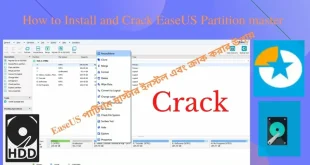Handling debt is challenging for many homeowners. About 41 percent of Americans have some debt. Finding good methods to handle this debt is essential. Utilizing home equity might be a wise choice. But you ought to know both the pros & cons first. Let’s clarify how to utilize home equity & strategic financial restructuring services to manage debt. You should also think about the debt to income ratio. Companies utilize it to see if they can manage debt. Separate your gross amount by your whole monthly debt costs. A minimum DTI ratio shows better debt management. A DTI ratio below 36% is usually good. It can give you a transparent overview to assist you in making wise decisions.
Understanding Home Equity
Home equity is the portion of your house. To understand it, remove what you lend from your house’s demand value. You make house equity in two methods. First, repaying your loan enhances your equity. Then, if your house’s worth increases, so accomplish your equity. Knowing this shows that home equity is useful. People often ignore home equity in individual finance. Yet, it is essential to your financial health. Utilizing this investment can give you funds for necessities like repaying maximum interest debt.
Unlocking Financial Flexibility
One major benefit of utilizing home equity to manage debt is minimum interest. These loans often have reduced interest than personal loans. It will keep you interested in a long time. These loans are supposed to be tax-deductible. This can provide extra financial relief. Always check with a tax adviser to understand your business benefits. Utilizing home equity to combine maximum interest loans into one amount can simplify your finances. Instead of juggling many due dates & interest, you’ll have one monthly income. This payment will often be at a reduced rate. It can make handling your money easier and less stressful.
Risks Associated With This Process
The biggest risk of utilizing home equity to handle debt is yielding your house. If you skip amounts on the debt, your borrower can take your belongings. So you can manage the new loan. You should also think about the debt-to-income ratio. Companies utilize it to see if they can manage debt. Separate your gross amount by your whole monthly debt costs.
You should also think about the debt-to-income ratio. Companies utilize it to see if they can manage debt. Separate your gross amount by your whole monthly debt costs. A minimum DTI ratio shows better debt management. A DTI ratio below 36% is usually good. A minimum DTI ratio shows better debt management. A DTI ratio below 36% is usually good. Home equity is the portion of your house. To understand it, remove what you lend from your house’s demand value. You make house equity in two methods. First, repaying your loan enhances your equity. Then, if your house’s worth increases, so accomplish your equity. Knowing this shows that home equity is useful. People often ignore home equity in individual finance. Yet, it is essential to your financial health. Utilizing this investment can give you funds for necessities like repaying maximum interest debt. Handling a home equity loan affects your long-term plans. Think about how this choice fits with your future goals. These might be retirement or paying for your kids’ education. Utilizing home equity to organize debt might help now. But consider your long-term objectives. These loans often have hidden fees & charges. These include inspection fees & early repayment penalties.
Right Move for You: How to Decide
Before utilizing home equity for debt management:
- Check your current finances.
- Detail all your debts.
- Record your earnings sources.
Document your monthly charges. It helps you notice if utilizing home equity is a suitable option.
You should also think about the debt-to-income ratio. Companies utilize it to see if they can manage debt. Separate your gross amount by your whole monthly debt costs. A minimum DTI ratio shows better debt management. A DTI ratio below 36% is usually good. Think about your long-term economic objectives before deciding. Make sure this choice fits with your overall plans. Don’t risk your future financial security.
Alternatives to Using Home Equity
If home equity choices don’t suit you, believe in other options from smart debt management in the USA. Personal loans have specified interest rates & terms. This makes them easy to schedule for. Balance transfer cards usually offer brief, interest-free periods. It permits you to repay the loan without extra interest.
Debt management programs are another option. Start by tracking what you pay. Find places to cut spending. Put more funds towards repaying your debt. This method needs discipline but leads to long-term economic health or business. Making a budget means knowing all your income & expenditures. Look for non-essential costs to cut. Utilize those savings to settle down your loan quickly. Set monetary plans & stick to your strategy. You should also think about the debt-to-income ratio. Companies utilize it to see if they can manage debt. Separate your gross amount by your whole monthly debt costs. A minimum DTI ratio shows better debt management. A DTI ratio below 36% is usually good. Also, weigh setting up automated payments. It can help you bypass late fees & stay on track. Check your budget often. Ensure it fits your goals and adjust as needed.
By trying these options and taking active steps, you can supervise your debt well. Gain financial stability without using home equity.
Conclusion
Utilizing home equity to organize debt can be a wise move. It offers benefits like more down interest & possible tax breaks. But be conscious of the troubles. You can fail your home, & there may be hidden fees. First, review your finances. Notice your DTI ratio. Consider your long-term objectives. It helps you determine if utilizing home equity is good for you. You should also think about the debt-to-income ratio. Companies utilize it to see if they can manage debt. Separate your gross amount by your whole monthly debt costs. A minimum DTI ratio shows better debt management. A DTI ratio below 36% is usually good. If you’re unsure, consider other alternatives. These loans have specified rates & terms. Debt management programs can reduce your rates & amounts. Building a sustainable budget also helps. US Credit Solutions can review your debt and objectives. Making wise choices can guide you to a protected financial future.
 Daily Blogger News Stay updated with the latest trends and insights. Your reliable source for daily updates and information.
Daily Blogger News Stay updated with the latest trends and insights. Your reliable source for daily updates and information.







